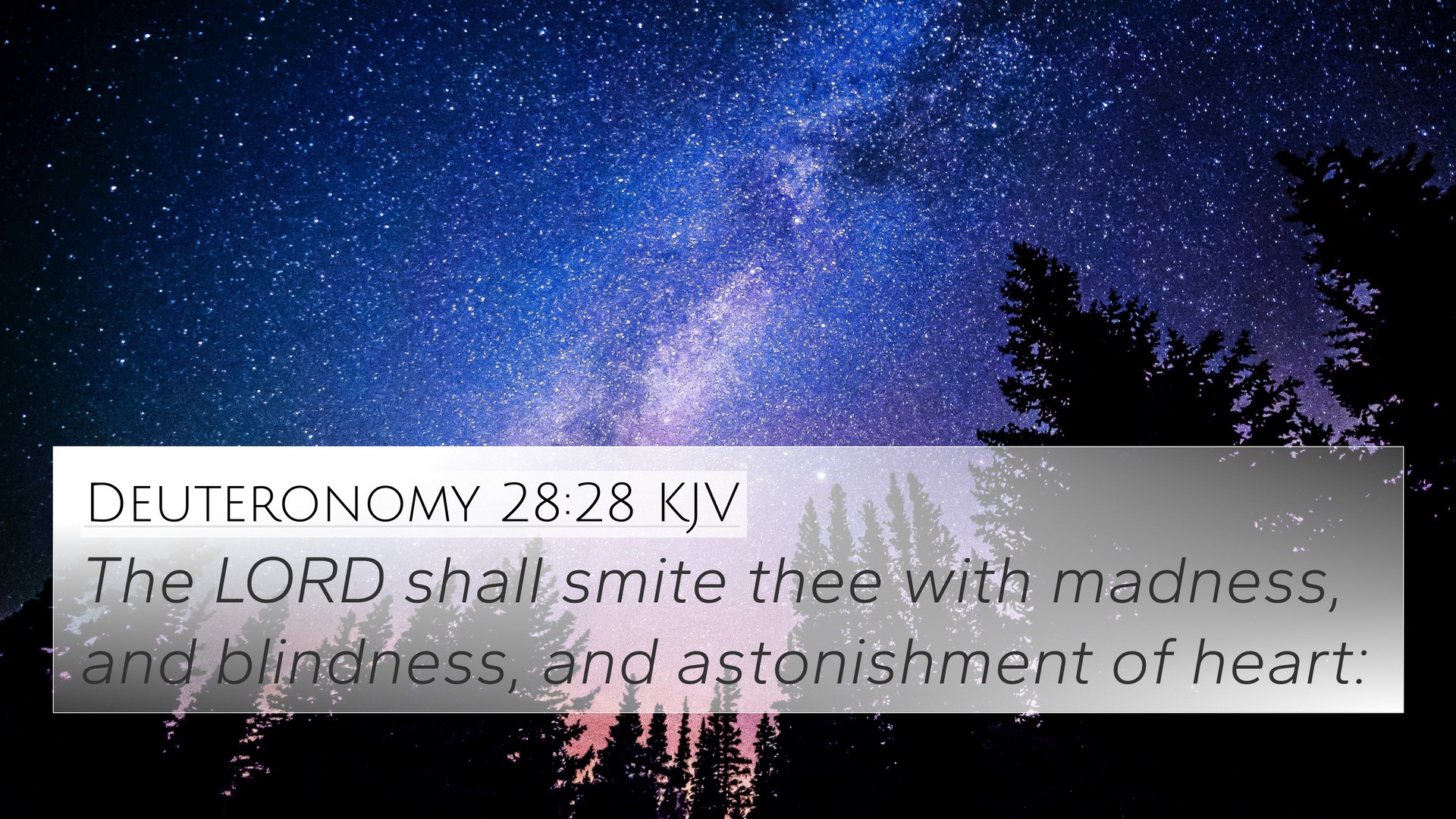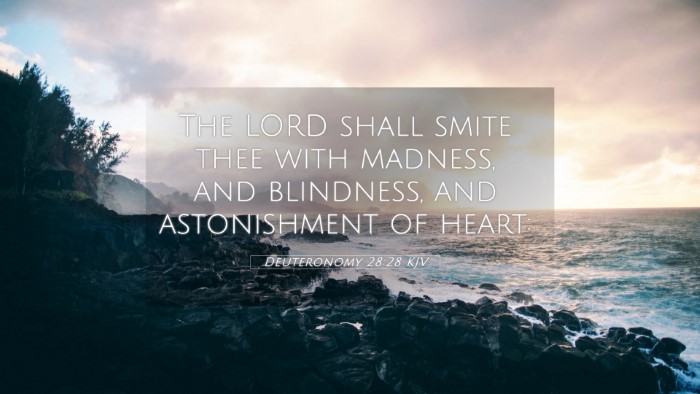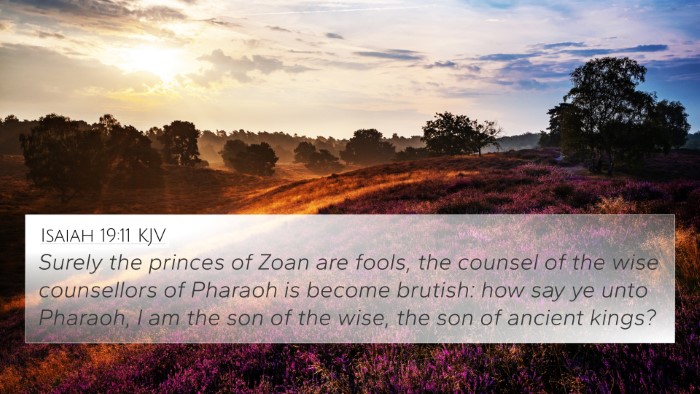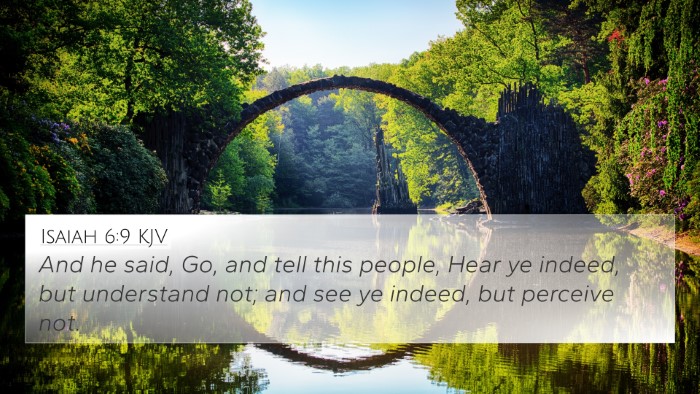Understanding Deuteronomy 28:28
Verse: "The LORD shall smite thee with madness, and blindness, and astonishment of heart." (Deuteronomy 28:28)
Overview of the Verse
This verse is part of the categorically important chapter in Deuteronomy that outlines the blessings and curses associated with the covenant between God and the Israelites. Specifically, Deuteronomy 28 details the consequences of disobedience to God’s commandments.
Meaning and Interpretation
The verse conveys a serious warning from God about the dangers of forsaking His laws. It encompasses three critical terms - madness, blindness, and astonishment of heart - each representing different forms of ruin resulting from straying from divine guidance.
Insights from Public Domain Commentaries
- Matthew Henry: He emphasizes that these afflictions symbolize a state of confusion and despair that arises when one turns away from God. Madness represents a complete loss of reason, blindness signifies a lack of spiritual understanding, and astonishment of heart points to emotional turmoil and distress. Henry notes that God's discipline is not merely punitive but also serves a corrective purpose.
- Albert Barnes: Barnes outlines that the manifestations of madness and blindness are not just physical ailments but rather indicate a deeper, spiritual malady. He highlights that when communities or nations reject divine instruction, they risk falling into chaos and irrationality, which is a direct consequence of God's judgment. His commentary suggests the wider implications for both the individual and the collective nation.
- Adam Clarke: Clarke views this verse as detailing the psychological and emotional ramifications of divine punishment. He points out that people can become overwhelmed by their circumstances, losing their ability to think clearly or to act rationally when separated from God’s teachings. Clarke emphasizes the seriousness of spiritual blindness as it disconnects individuals from both divine insight and communal harmony.
Cross-References
This verse finds resonance with several other Biblical texts that discuss themes of disobedience, punishment, and the resulting mental and spiritual states. Key cross-references include:
- Deuteronomy 28:15: This verse introduces the list of curses that will come upon those who do not obey God's commands.
- Isaiah 29:10: Describing God’s judgment where a spirit of deep sleep is sent upon the people, echoing themes of blindness and spiritual lethargy.
- Jeremiah 5:21: This verse calls attention to the folly of a people who have eyes but do not see, again linking to the metaphor of spiritual blindness.
- Romans 1:28: Here Paul explains how God gives them over to a reprobate mind, further connecting madness and a lack of understanding with divine abandonment.
- Psalms 69:23: This passage reflects on those being blinded and deprived, which resonates with the emotional and cognitive turmoil noted in Deuteronomy 28:28.
- Proverbs 1:28-30: Wisdom's rejection leads to calamity, demonstrating how ignoring divine counsel leads to disastrous outcomes.
- Matthew 15:14: Jesus speaks about the blind leading the blind, reinforcing the concept of spiritual blindness and its consequences.
- 2 Thessalonians 2:11: This New Testament passage describes a similar theme of God sending a strong delusion upon those who did not love the truth.
- Luke 19:41-44: Jesus weeps over Jerusalem, lamenting that they did not recognize the time of their visitation, highlighting a form of spiritual blindness and its tragic consequences.
- Revelation 3:17: This verse warns how self-deception leads to a false sense of security and blindness to spiritual neediness.
Thematic Connections
Deuteronomy 28:28 resonates with themes found throughout both the Old and New Testaments regarding the consequences of ignoring God's laws:
- Mental and Emotional Distress: The afflictions of madness, blindness, and astonishment can be seen in various narratives where individuals or nations turn from God.
- Disobedience and Judgment: There is a strong pattern of scripture that connects obeying God's commands with blessings, while neglect leads to curses and suffering.
- Spiritual Blindness: This motif appears repeatedly, as seen in Jesus' ministry, where the failure to see and understand divine truth is a substantial issue.
Conclusion
Deuteronomy 28:28 serves as a potent reminder of the far-reaching implications of disobedience to God. By understanding its context and connections to other scriptural references, one can appreciate the gravity of spiritual neglect. The commentaries of Matthew Henry, Albert Barnes, and Adam Clarke together paint a comprehensive picture of how turning away from divine guidance can lead not only to physical consequences but also to emotional and spiritual disarray.
Tools for Bible Cross-Referencing
For those seeking to deepen their understanding of scripture, utilizing tools like a Bible concordance or cross-reference Bible study guides can illuminate connections between verses.
How to Use Bible Cross-References
When exploring scripture, consider examining verses in relation to themes such as:
- Consequences of disobedience
- God's discipline and corrective measures
- The nature of spiritual blindness












